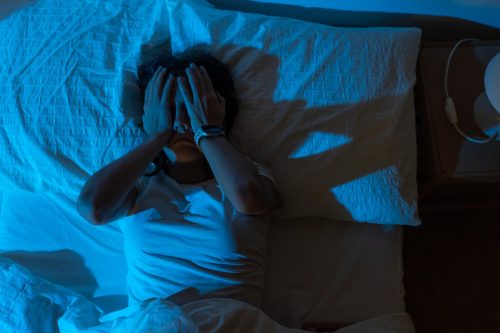Insomnia, a sleep disorder that causes difficulties in falling asleep, staying asleep, or waking up too early, is a pervasive malady that afflicts millions of individuals across the globe. Insomnia not only leads to fatigue, irritability, and decreased productivity but can also cause other adverse health effects. A good night’s sleep, therefore, is of utmost importance to maintaining overall well-being. Numerous approaches can be taken to manage insomnia and improve sleep quality. By taking a multifaceted approach, people can overcome the negative effects of insomnia and obtain the restorative sleep they need.
In attempting to understand insomnia, one must first acknowledge that there are various factors that contribute to the development of this condition. Stress, anxiety, depression, and medical conditions, amongst others, can all be responsible for causing insomnia. Further, two different types of insomnia exist: acute and chronic. Acute insomnia is a transient condition that often resolves on its own, while chronic insomnia is a persistent and ongoing condition that requires professional medical attention. Common symptoms of insomnia include difficulty falling asleep, waking up frequently during the night, waking up too early, and feeling tired upon waking.
When it comes to managing insomnia, implementing lifestyle changes is a highly effective first step. These changes may include establishing a consistent sleep schedule, practicing good sleep hygiene, avoiding stimulants, such as caffeine and alcohol, and engaging in regular physical activity. Moreover, maintaining a healthy diet, that is rich in tryptophan, can also be instrumental in combating insomnia. Another effective strategy for managing insomnia is through cognitive-behavioral therapy (CBT). CBT helps to modify negative thoughts and behaviors related to sleep and includes techniques such as sleep restriction therapy and stimulus control therapy. Relaxation techniques like deep breathing exercises and progressive muscle relaxation are also useful in managing insomnia.
For individuals who require medical assistance in managing insomnia, medications, such as hypnotics and non-benzodiazepine drugs, can be prescribed to help promote sleep. Nevertheless, medication should be used with caution and only when necessary. Over-the-counter sleep aids, such as antihistamines, can also be utilized. Additionally, herbal remedies, like valerian root and chamomile, have been known to provide some relief to individuals with insomnia.
Moreover, there are other strategies that individuals can adopt to promote better sleep quality. Maintaining a comfortable sleep environment, with a supportive mattress and pillows, can significantly enhance sleep. The use of technology, such as blue light filters and white noise machines, is another viable option to improve sleep quality. Mindfulness and meditation techniques, like mindfulness-based stress reduction (MBSR), can help manage stress and, in turn, improve sleep quality. If the aforementioned strategies do not improve sleep quality, it may be necessary to seek professional medical help for chronic insomnia.
In conclusion, it is clear that insomnia can have far-reaching and detrimental effects on an individual’s health and well-being. However, with the implementation of the above strategies, individuals can manage insomnia and overcome the negative impacts of this condition. By prioritizing sleep and making significant lifestyle changes, one can restore and maintain good sleep health. Therefore, it is important to seek professional help if one experiences chronic insomnia, as it can often indicate an underlying medical issue that needs to be addressed.

